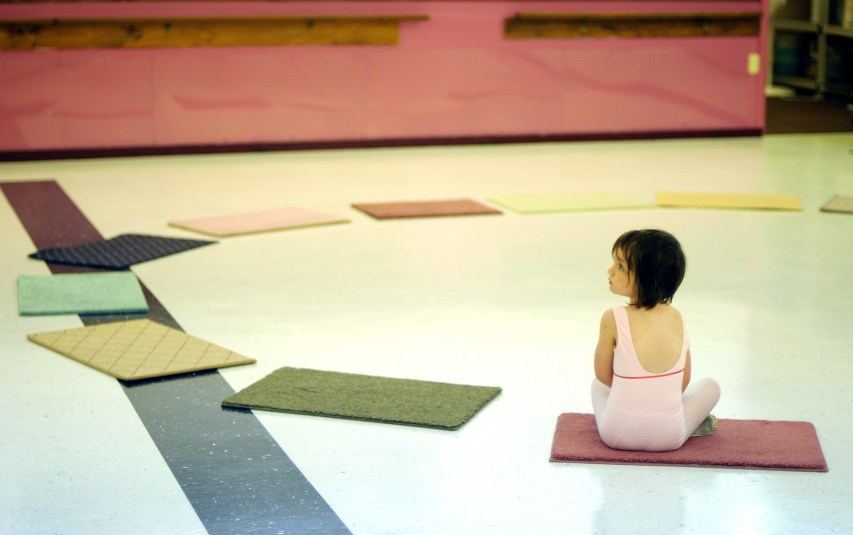How to Tell If Your Child Is Lonely

America — land of the free, home of the lonely. According to a new national survey from the healthcare provider Cigna, loneliness is at “epidemic levels.” Nearly half of all respondents reported feeling alone and left out, which begs the question: If so many people are lonely, how can we help? What are the signs of loneliness we need to look for in our friends and family? In particular, how do we know if our kids are lonely, too?
Cigna questioned 20,000 American adults using the UCLA Loneliness Scale, a 20-item questionnaire that calculates a loneliness score based on respondents’ answers. They found that almost half of participants feel alone (46 percent) or left out (47 percent), and that the younger generation — Generation Z — is the lonliest generation of all. An alarming 27 percent of respondents said they never or rarely feel like someone truly understands them, and 43 percent said they sometimes or always feel like their relationships are not meaningful.
Though the study looked at people over the age of 18, it would be silly to assume that children can’t also be lonely. That said, kids often clam up the moment they feel like you’re invading their space, so getting them to tell you that they feel lonely can be a near-impossible feat. To know whether you have an introverted offspring or a lonely child in need of help, Stuart Lustig, MD, the national medical executive for Cigna’s behavioral health business shared with FIRST some tips for parents.
Signs of Loneliness in Kids
“I think loneliness goes hand in hand with isolation for most people, particularly kids,” Lustig says. “One thing parents can be on the lookout for is any kind of isolative activity, or the absence of activities that would lead to isolation in their children, [like] how much time children are spending alone. Are they cooped up in their rooms most of the time in front of screens or with their heads buried in books? Or are they actually out socializing? Do parents know their children’s friends, for example? Do their children have friends that they spend meaningful time with? Those are the kinds of things to be on the lookout for. And parents whose kids have a social group, particularly a group of kids they spend in-person time with as opposed to just online or in front of screens, then those parents need to worry less than the parents of kids who really don’t seem to have those kinds of social contact.”
Does this sound like your child? If so, there are ways to help a lonely child, according to Lustig.
How to Help a Lonely Child
“Some kids don’t [have in-person interactions] for a variety of reasons,” Lustig explained. “Those may be that some kids are very anxious and aren’t sure how to go about making friends, or they’re afraid that other kids are going to judge them or bully them or think less of them in some ways. So depending on the age of the child, particularly for younger kids, some kids may actually need parental involvement to facilitate making those contacts or even having playdates or structured time together [for their kids and their kids’ friends]. Older kids may just need a little bit of a nudge in order to initiate those friendships or those contacts and better be left on their own. Most teenagers are not going to want their parents around obviously, as opposed to younger kids who are more tolerant of having one or two sets of parents [involved]. So parents shouldn’t be shy about doing that if their kids seem to be spending too much time alone.”
But what if your child is just introverted? How do you know if it’s in their personality to prefer alone time or if it’s time to get involved?
How to Tell If Your Child Is Lonely or Just Introverted
“There’s certainly a range of preferences among kids, and some kids really are genuinely happier by themselves,” Lustig says. “I would be worried about a kid who had no friends. Particularly as kids get older, they are well aware that their peers [are forming friendships] or [are] coupled off in romantic relationships. I think kids who aren’t able or aren’t interested in those kinds of relationships are missing out to some extent. But the general rule of thumb is talk to your child first of all, and ask them how happy they are, or if there’s a particular reason that they don’t seem to be spending more time with others. And some kids will [open up] when given the chance to talk to an adult who’s [empathetically] listening. Kids will tell you whether or not it’s because there’s some impediment that they would otherwise like to have friends, or if in fact they’re just happy reading a book. But I would be concerned if the answer is they would rather be at home playing video games, because certainly screen time can be addictive and really be a replacement for the natural maturation processes we all need to go through to know how to live in the world and be around other people without screens as an intermediary.”
More From FIRST
13 Funny Photos of Celebrities That Everyone Can Relate To
I Spent My Hard-Earned Cash on a Jerk in the Drive-Thru to Teach My Kids a Lesson













